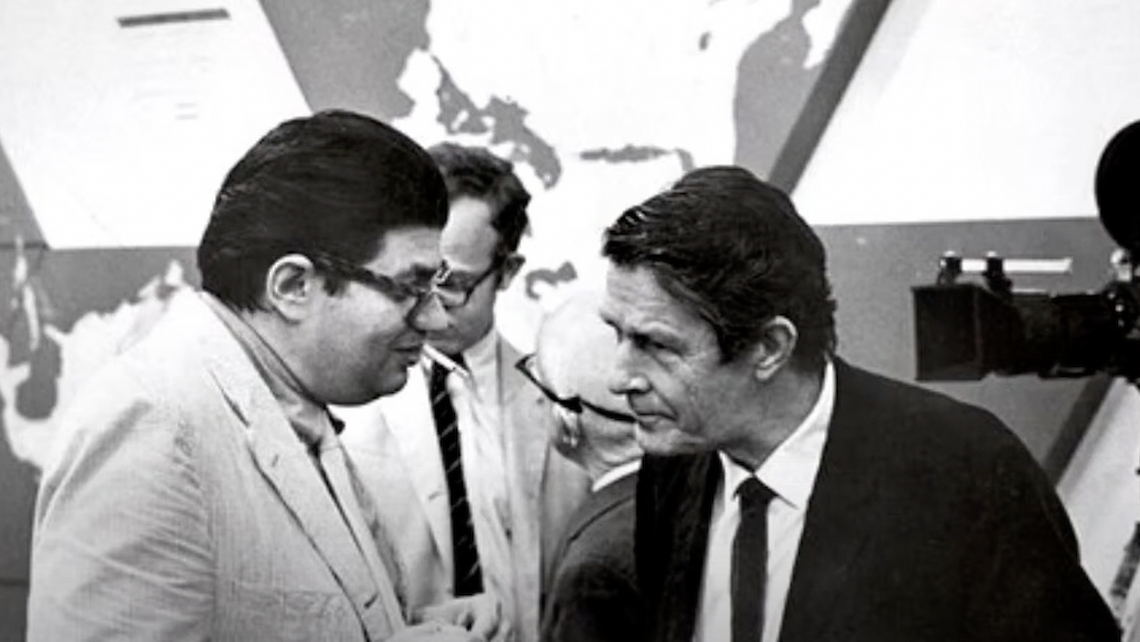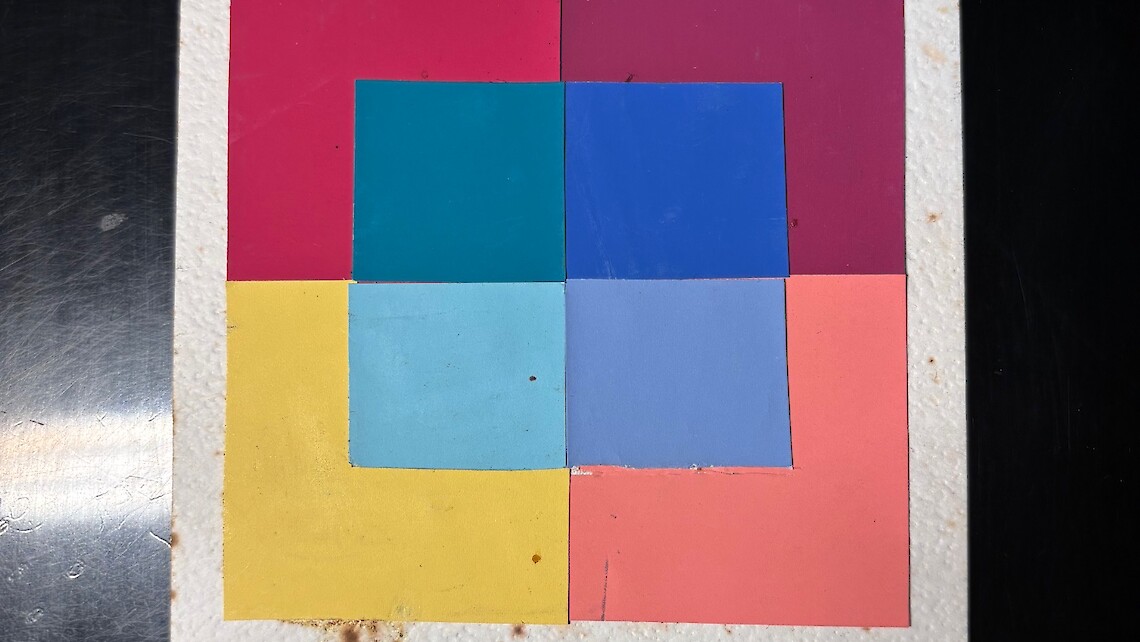Homegrown American Expressionism
Homegrown American Expressionism
The work discussed here will be released in a matter of months.
Here’s the story of a brilliant, talented composer with a heavy metal background tasked with writing an Agnus Dei for some group of amiable, good natured vocalists. The work turned out beautifully. But the singers didn’t quite get it.
So the composition is reworked into an electric guitar quartet, one of the most hard-edged powerful electric guitar quartet I’ve ever heard.
Punctuational Gestures
In corners between phrases rapid gestures are interpolated, as if to shake sense into the singers, but also to bring the work closer to the core of the composer’s heavy metal sensibility.
Heavy metal aspects come to the fore, but all the while something of the Agnus Dei remains.
I wasn’t looking for this, but it’s a beautiful syzygy.
Listening to the heavy metal Agnus Dei and the succeeding 2 movements for e-guitar quartet, I’m bowled over, impressed, but also moved, the slow rising microtonal glissandi in counterpoint with the continued unfolding of the movement is killer, and I imagine a scene –
Composer’s parents and/or perhaps his school teachers sit down with him afterwards and ask,
“He was a nice boy; he used to cut the grass.”
“Is it that bad? What could we have done better? How can we help?”
–Spare us the kitsch and keep dangerously incompetent frauds out of government?
If one does not confront such realities it might be because one is hopped up on kitsch, on the slippery slope into an authoritarian nightmare.
This composer is ok. He has his outlet, but his work portrays the anguish of those who don’t have an outlet and they are acting out and harming us.
I don’t know if the analogy is strong, but I think of this fine strain of heavy metal as homegrown American Expressionism. Our version of Munch’s The Scream.
////////////////
American Expressionism
I’ve complained about wholesale importation of German Expressionism to the US. I’ve complained about Milton Babbitt’s settings of August Stramm, which are some of my favorite of his early songs. I feel, nevertheless, that it was wise of him to collaborate with John Hollander because there is something inauthentic about the importation.
Heavy metal is homegrown. (I will reveal the composer’s name if he lets me.) I have tasked myself with sketching the broader cultural landmarks in homegrown American Expressionism, limited, obviously, to what I’ve encountered. Input welcome.
In Melville’s Israel Potter there is a gut-wrenching scene where Israel is holed-up in a secret room in a house. Reminds us of *Being John Malkovitch*. He finds his way out of that identity crisis, but just after getting under way he sees a scarecrow and trades clothes with it. Later he works in a brick yard. “I am a brick”. Doing is being. Existence precedes essence. The identity crisis is an intensified form of what was already emerging in the English novels. Moll Flanders. The agonies of self-creation. Another scene: Israel is working as a gardener on the king’s grounds. He encounters the king. I do not remember the exchange, but the encounter alone is dramatic enough. Israel is no longer his subject. Israel is no longer defined in relation to the king. Does Melville need any Satrean exegesis?
preemptively:
do-be-do-be-do
–Frank Sinatra
Next, from Melville’s *The Confidence Man* there is a vignette about a man who was doing ok, was well respected in his town. He loses everything. I must re-read to remember how his misfortune occurs. When he loses his property he also loses his standing. I think he claws his way back. But the episode is as bleak as it gets in American fiction.
There is a bleakness here in the US and it is not painted over, it is not a many-layered cultural palimpest, like Europe. Or, if it is already that, we are still too close to the naked bedrock and the yawning chasms of ambiguity.
Charles Wuorinen was careful to explain that Annie Proulx’s *Brokeback Mountain* was all about negative nature. The mountains were inhospitable, unheimlich, not beatiful as the movie portrays them. Auden writes about Poe’s fear of the sea. Harold Bloom wrote of negative nature in connection with Whitman.
////////////
Heavey metal does not abdicate.
Our heavy metal is enriched by acquaintance with Aleister Crowley, but did we need Aleister Crowley? Is Aleister of the British invasion? Is it fair to say that the American heavy metal people get the analogies between their homegrown conversations and their transatlantic counterparts – Aleister Crowley, The Yellow Book, Dowson?
The Masons
If we have masons in background, they were likely active in the generation of our great-grandparents.
Perhaps that generation of Americans was in its Pre-Raphaelite mode – Gothic and Tudor architecture and Medeival themes – Frank Baum and James Branch Cabell. They were busy building and that kept them distracted from the bleakness that was there, right under their noses. That generation was focused on building cities in the spirit of an expanded Christendom, but it was also a feeding frenzy? Some want to keep that feeding frenzy going. The regulation that makes wealth creation possible is now excoriated. We are sawing off the limb upon which we are perched.
Aleister Crowley’s masony was more esoteric, speculative(?).
At the Raleigh-Durham Airport I noticed that one hears heavy metal and hard rock at the gate. Not so in the New York airports.
I don’t know enough about it, but I feel Masonry is a spiritual discipline. I think of Loyala’s spiritual exercises, which are viusualization exercises.
Our heavy metal culture is a spiritual disciplne, a visualization exercize, and we need it, just as the Germans needed Stephan Georg and Arnold Schoenberg, just as the British needed Thomas Beckford, Aubrey Beardsley; Baudelaire, Huysmanns, Maeterlinck in the Frankosphere. In various creative ways, place our situation on the palm of your hand and examine it.
Needless to say, there’s much more to heavy metal than I can dash out in a sprint. Let’s leave it with this:
Heavey metal does not abdicate.









William Anderson is a guitarist and composer and an advisor to the Roger Shapiro Fund.